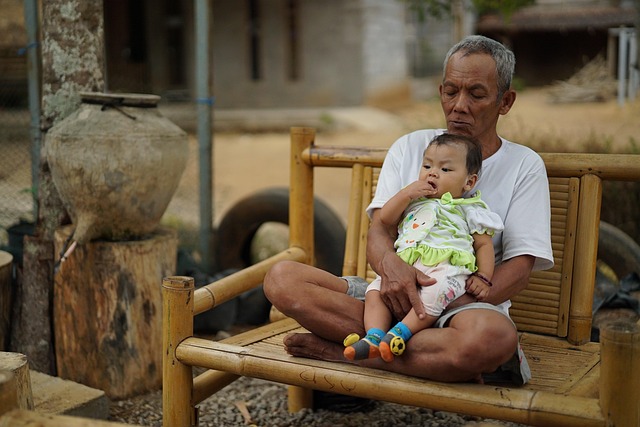Hospice care planning offers a compassionate and personalized approach to managing advanced or terminal illness, focusing on emotional, spiritual, and social aspects for holistic comfort and dignity. By creating tailored care plans, patients and families can ensure their unique needs and preferences are respected, including setting choices and medical treatment options outlined in advance directives. This proactive process improves communication, reduces unnecessary interventions, and enhances quality of life during the end-of-life journey, empowering individuals to receive the care they desire while building a robust support network.
In today’s digital era, compassionate end-of-life care planning services are more crucial than ever. As we navigate the delicate journey towards the end of life, understanding hospice care planning offers a gentle approach, ensuring patient autonomy and comfort. This comprehensive guide explores key aspects, from the role of advanced care planning to integrating emotional support and building a supportive network. By delving into these essential topics, we aim to provide a holistic experience for both patients and their families, emphasizing the importance of hospice care planning in fostering a nurturing environment during this challenging time.
- Understanding Hospice Care Planning: A Gentle Approach to the End of Life
- The Role of Advanced Care Planning in Ensuring Patient Autonomy and Comfort
- Integrating Emotional Support and Practical Considerations for a Holistic Experience
- Building a Supportive Network: Family, Healthcare Professionals, and Resources
Understanding Hospice Care Planning: A Gentle Approach to the End of Life

Hospice care planning is a compassionate and gentle approach to managing the end-of-life journey. It involves creating a personalized care plan tailored to an individual’s unique needs, preferences, and goals as they face advanced or terminal illness. This holistic approach considers not just physical symptoms but also emotional, spiritual, and social aspects of care, ensuring comfort and dignity during this sensitive time.
By integrating hospice care planning into their end-of-life strategy, individuals can ensure their wishes are respected, and they receive the support needed to live out their days with quality and peace of mind. It’s a chance to have open conversations about personal values, preferences for medical interventions, and the importance of family involvement in the care process, all while exploring comfortable and familiar settings for receiving care.
The Role of Advanced Care Planning in Ensuring Patient Autonomy and Comfort

Advanced care planning plays a pivotal role in ensuring patient autonomy and comfort, especially towards the end of life. It involves discussions between patients, families, and healthcare professionals to outline preferences for medical treatment, including decisions about hospice care planning. By proactively addressing end-of-life goals and wishes, individuals can ensure their dignity and quality of life are maintained during this sensitive period.
This process empowers patients to make informed choices, allowing them to receive the type of care they desire. Hospice care planning, as part of advanced directives, enables people to choose a setting that feels most comfortable—whether at home, in a nursing facility, or in a hospice environment. It also clarifies treatment options and helps families understand their roles, fostering open communication and reducing unnecessary medical interventions.
Integrating Emotional Support and Practical Considerations for a Holistic Experience

When planning compassionate end-of-life care, it’s vital to integrate emotional support with practical considerations for a holistic experience. Hospice care planning goes beyond medical management; it must address the psychological and social needs of both the patient and their loved ones. This includes providing counseling services to help individuals process grief and fear, as well as creating safe, comfortable environments that promote dignity and quality of life.
Practical considerations such as advance directives, power of attorney, and financial planning are crucial components of hospice care. These legal documents ensure that patients’ wishes are respected, and their affairs are in order. By seamlessly blending emotional support with practical planning, compassionate end-of-life care services offer a comprehensive approach that respects individuals’ autonomy while fostering a sense of peace and belonging.
Building a Supportive Network: Family, Healthcare Professionals, and Resources

When planning for compassionate end-of-life care, building a supportive network is paramount. This includes involving close family members and fostering open communication about everyone’s roles and expectations. By establishing a strong foundation with loved ones, individuals can ensure their wishes are understood and respected. Furthermore, healthcare professionals play a crucial role in providing guidance and expertise on hospice care planning, offering valuable insights into available resources and ensuring the best possible care for all involved.
In addition to family dynamics and medical professionals, leveraging external resources is essential. Various organizations and support groups specialize in end-of-life care, offering services that range from legal advice on advance directives to emotional counseling for families. Incorporating these elements into hospice care planning facilitates a more comfortable and serene transition, allowing individuals to focus on living fully until their final days while knowing their loved ones are prepared to carry on after them.
Compassionate end-of-life care planning, encompassing hospice care, advanced directives, and support networks, is a vital aspect of ensuring patient autonomy, comfort, and a holistic experience. By understanding these services and their integration, individuals can navigate the complexities of the end-of-life journey with dignity and peace of mind. Through proactive planning, families are empowered to make informed decisions, fostering open communication and strengthening bonds. This approach not only respects individual choices but also fosters a supportive environment for both patients and loved ones during this sensitive period.
